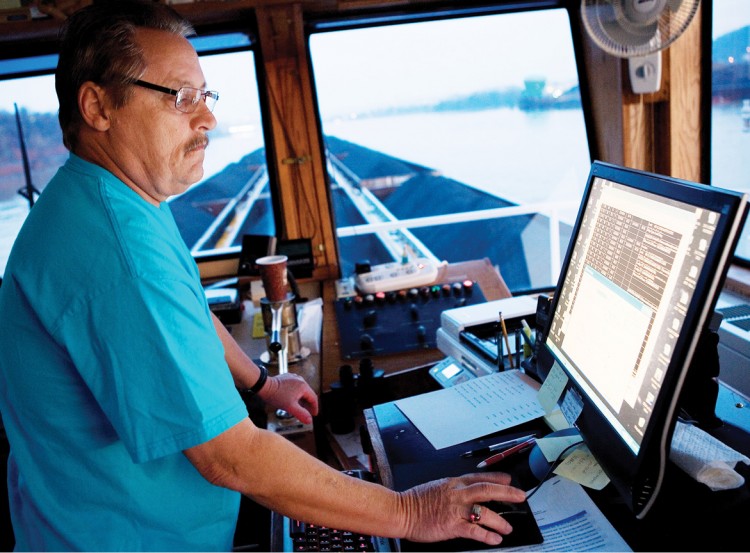
While at the helm of a towboat navigating more than 20,000 tons of cargo down shifting river channels, feeling sleepy is not an option for pilots like Darrell Koontz.
“Normally, there are eight other people besides myself on the boat, and I have their lives in my hands, not to mention other people on the water or on bridges,” says Koontz, who pilots the M/V Daniel T. Martin for Ingram Barge Co.
“By its nature, piloting towboats is sedentary,” says Dr. Raghu Upender, medical director of the Vanderbilt Sleep Center. “When you add high-calorie diet, limited opportunity for exercise and suboptimal sleep, there is high incidence of obesity in this population. Obesity is one of the major risk factors for sleep apnea.”
Ingram Barge Co. partnered with the Vanderbilt Sleep Center to provide sleep-apnea screening, treatment and coaching to employees. An initial cohort of 16 captains and pilots with BMI (Body Mass Index) over 40 were given sleep studies, and all were diagnosed with sleep apnea.
Sleep apnea is treated with a continuous positive airway pressure (CPAP) machine, which uses a face mask to deliver mild pressure to keep the airway open, but patients often find it difficult to adjust to wearing it. Patients in the program average CPAP compliance of 80 percent, compared to about 50 percent in the general population.
That success is credited to Patience Bridges, project coordinator and administrative assistant in the Vanderbilt Sleep Division. Bridges has made it her mission to get patients to 100 percent CPAP compliance.
“It’s totally tough love,” Bridges says. “When they want to complain about something, I can always find a reason for them to keep at it.”
Now that Koontz is at 100 percent compliance with his CPAP therapy, he is amazed at the difference. “I’m getting quality sleep out here,” he says.
Ingram and Vanderbilt Sleep Center are expanding the program to employees with BMI below 40. They hope to have 100 patients enrolled by the end of the year.